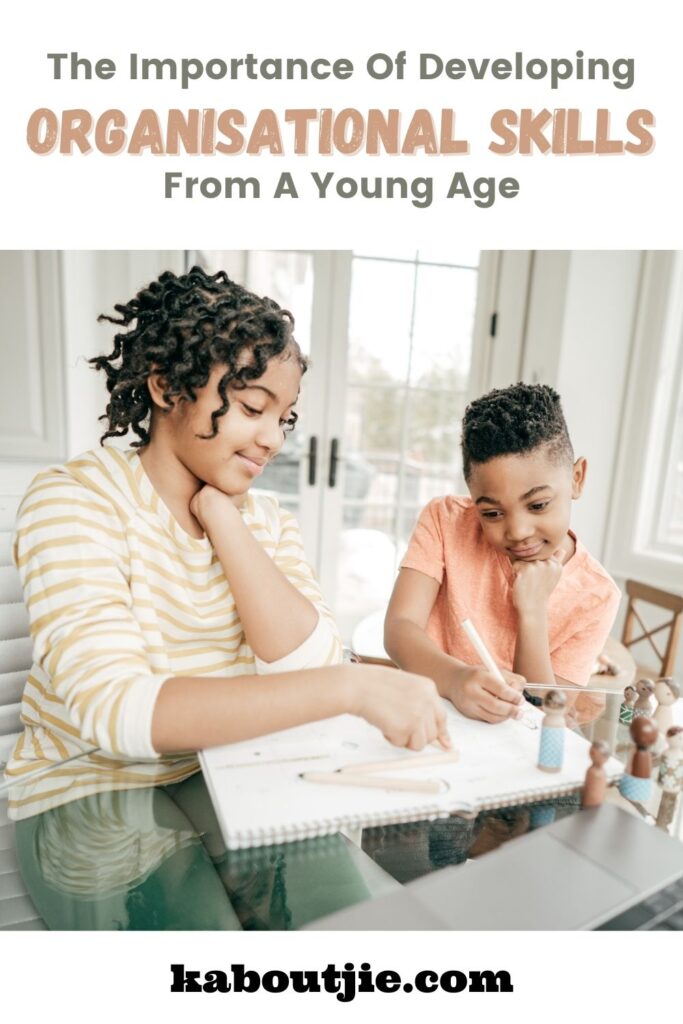Developing organisational skills is important in holistic child development, and a key step in their path towards independence and academic success. Children are capable and competent and will respond to the opportunity to be organised, an education expert says.
“Organisational skills help children create order in their environment and the world, and they feel empowered to take on increasingly more complex tasks as they build on this foundational skill,” says Desiree Hugo, Head of Academics at ADvTECH Schools, a division of Africa’s leading private education provider.

She says parents can progressively start introducing organisational skills into the everyday lives of their children by making it a fun and empowering experience. Essential to this introduction is ensuring your child has good role modelling, and this is easily done by parent and child preparing for the school day before bed time. Ensure school uniforms are prepared, school bags are packed, lunch boxes are ready to be filled and plans for collection from school are discussed. Involve your child in these preparations and give them the responsibility of participating in the organisation of their day and space. Leave early in the morning to avoid traffic congestion, and prevent your child becoming anxious by late arrival. The impact of arriving late will be affect the child’s settling in and learning throughout the day.
“Teaching, modelling and allowing the child autonomy to practice these essential skills have a significant and long-lasting impact on a child’s ability to succeed throughout their academic career; since these are essential life skills and they are the foundation to building a child’s ability to feel prepared, and ready to learn and engage in the classroom.
Hugo says that all children are unique, and while some may have an innate drive to organise their environment, others may be quite content to let chaos compound around them. These differences in personality may very likely translate to schoolwork and responsibilities at home as well, she says, so organisational skills should be encouraged and introduced in an age-and personality appropriate way from a young age.
“Your average preschooler isn’t going to be keeping a diary or to-do list, for instance, but they can understand, develop and share routines at home and in the classroom,” Hugo says.
“Teachers can help students stay on track by following a general schedule each day. Maintaining structure in the classroom supports students to establish a schedule and remember what is expected of them. Structure in this second year of Covid is important, given that most children in South Africa still have a disrupted educational experience, so where possible, structure helps alleviate some of the impact of this disruption by providing a measure of certainty and predictability.”

She says at home, chores such as cleaning up toys, putting away clothes and helping set or clear the table – or whichever recurring chores arise within the home environment – are good ways to teach children the methodical approach to following directions and focusing on a task.
“Establishing an after-school routine for having lunch, planning their work timelines, and completing homework promptly is also helpful, not just academically, but it provides a sense of structure and achievement.”

Hugo says that parents can help their child on their organisational journey by creating a nurturing environment conducive to learning and developing important foundational skills, but always believing in the competencies of their child.
“With the right encouragement and approach, children will gradually start to build organisational muscle, and be proud of their contribution within the home and at school.”
Playful family time is essential and co-creating games are interactive. An exciting way to introduce new concepts – particularly to an otherwise reluctant child – is to turn it into a game, says Hugo.
The LEGO Foundation www.legofoundation.com and UNICEF www.unicef.org share useful elements of playful pedagogy and these online platforms offer playful learning ideas, materials and strategies for schools and families, which can support organisational thinking.
“As academic demands start to grow, children may experience challenges setting priorities, making plans, sticking to a task and getting things done. These skills become increasingly important as your child moves through different grade levels. Many people think of organisational skills as the ability to keep things in order, but it is much more than that – it sets a child up for success and enjoyment of their learning journey.”

About ADvTECH
The ADvTECH Group, a JSE-listed company, is Africa’s largest private education provider and a continental leader in quality education, training, skills development and placement services. The Group reports its performance in a segmental structure reflecting the Schools and Tertiary as two separate education divisions, and Resourcing as the third division. ADvTECH’s Schools division comprises 10 brands with more than 100 schools across South Africa, including Gaborone International School in Botswana and Crawford International in Nairobi, Kenya. It owns 9 tertiary brands, across 30 campuses across South Africa and the rest of Africa, and its higher education division, The Independent Institute of Education, is SA’s largest and most accredited private higher education provider. ADvTECH’s 9 resourcing brands places thousands of candidates annually, assisting graduates to make the transition from the world of study to the world of work.
 Kaboutjie SA Mommy Blogs by Lynne Huysamen
Kaboutjie SA Mommy Blogs by Lynne Huysamen




